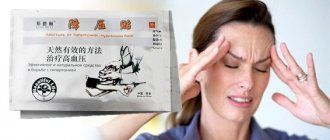Home>Articles>Magnesia as a hangover cure
quick menu (hide)
- What is the drug
- Features of the action
- Using magnesium for a hangover
- Compatibility of alcohol and magnesia
- conclusions
There is hardly an adult who has never experienced a hangover. At the first stages of drinking alcohol, when a person had not yet figured out when he had enough, an unpleasant state arose in every drinker. Over time, this goes away, because the person tries not to exceed the norm. However, there are cases when it is still possible not to calculate the dose, and not everyone knows how to do this.
A hangover is a very unpleasant and sometimes truly painful condition, which is the result of too much alcohol in the blood. Alcohol, after being processed by the body, breaks down into individual components. One of the breakdown products is acetaldehyde, which causes a hangover.
To relieve unpleasant sensations, many different means are used, ranging from long-known “folk” ones to the most modern achievements of pharmacology. One of the most popular drugs among the population is Magnesia, although in fact the drug is not intended to eliminate withdrawal symptoms. The medication is an excellent laxative. What is its compatibility with alcohol? How does Magnesia help with a hangover? Let's figure it out further.
Properties and features of the drug
Drinking excessive amounts of alcohol inevitably leads to a hangover - the next morning after a wild party, a person experiences a number of extremely unpleasant symptoms. Poisoning with ethanol and its metabolites provokes headache, nausea, dizziness, and a state of general weakness and weakness . To get rid of hangover symptoms, patients try to use a variety of “folk” remedies and medications. One of the most popular among them is magnesium - magnesium sulfate, which has a multifaceted effect on the body.
Magnesia or magnesium sulfate is a magnesium sulfuric acid salt, also called Epsom salt. This is a powder for preparing a suspension ; it can also be purchased in pharmacies in ampoules, ready for injection. Intramuscular or intravenous administration provides the greatest effectiveness in eliminating hangover symptoms.
This drug has primarily a laxative and choleretic effect, which allows it to be used as a remedy for the treatment of severe poisoning. It is used for heavy metal poisoning Such properties have made it possible to use the remedy for treating hangovers - it allows you to quickly rid the body of ethanol breakdown products and improve your well-being.
The effect of the drug on the body depends on the method of administration:
Oral administration (by mouth) allows you to obtain a pronounced laxative effect within 2-3 hours.
Cleansing the intestines helps reduce the symptoms of poisoning. Intramuscular and intravenous administration provides anticonvulsant and sedative effects. Administration of the medicine by injection should be slow, this allows the effect to last up to 4 hours. With intravenous administration, the result can be obtained as quickly as possible, but the drug will act for no more than half an hour.
Drip administration. Magnesia is administered using a dropper in case of severe alcohol poisoning; it can be used as part of a complex of remedies for withdrawal from heavy drinking. Only a doctor should be involved in setting up an IV and selecting medications; the medication is gradually administered over an hour.
Taking the drug is incompatible with drinking alcohol. In this case, there will be an increased negative impact, and serious health problems are possible in the future. Application requires a complete abstinence from alcohol - this will make it possible to quickly get rid of a hangover and restore normal well-being.
What conclusions can be drawn
In fact, the product does an excellent job of serving its purpose. As reviews of Magnesia for a hangover testify, it perfectly relieves all symptoms of withdrawal symptoms. This occurs due to the rapid removal of all toxic substances formed after the breakdown of ethyl alcohol, which helps all body systems return to normal much faster.
Magnesia can be taken at the same time as drinking alcohol, but this should be done with extreme caution, and the correct solution would be to avoid such phenomena. Doctors' recommendations should not be ignored, and before using the drug it is recommended to consult a specialized doctor.
How does magnesium work for a hangover?
One of the reasons for a severe hangover is a violation of the water-salt balance: the body loses moisture, as well as beneficial salts, resulting in metabolic disruption. A lack of magnesium leads to migraine , sleep disturbances, insomnia, muscle spasms, and gastrointestinal diseases. With ethanol poisoning, all these unpleasant symptoms only intensify, and your health further worsens due to intoxication. Taking it helps eliminate magnesium deficiency and quickly eliminate the symptoms of poisoning.
Magnesia is used for hangovers , as it has the following set of properties:
Laxative and cleansing effect. The drug frees the body from alcohol and heavy, poorly digestible food, which often accompanies heavy libations.
Calming effect. Replenishing the deficiency of magnesium reduces feelings of anxiety, eliminates restlessness, and has a hypnotic effect.
Diuretic effect. The product helps relieve tissue from excess fluid, swelling and a feeling of heaviness go away.
Anticonvulsant action. The risk of convulsions and muscle spasms is reduced, tremors - hand trembling after severe alcohol poisoning - disappear.
Protection of the heart and blood vessels. The drug prevents tachycardia and heart rhythm disturbances, reducing the risk of complications of existing heart diseases. Blood pressure is reduced and a hypertensive crisis is prevented.
Restoration of strength. Supporting the functioning of the nervous system helps eliminate the feeling of lethargy and weakness; a person recovers much faster after a noisy feast with an abundance of alcohol.
Taking magnesium makes it possible to get rid of a whole complex of unpleasant hangover symptoms and quickly return to normal life. However, like any other medicine, it has its contraindications, so it is not recommended to use magnesia frequently and uncontrollably. To get over a hangover safely, it is recommended to call a narcologist to your home.
Indications of the drug
The medicine is widely used in gynecology and obstetrics, neurology, and gastroenterology. Droppers with magnesium sulfate are recommended for pregnant women both in the first trimester to prevent miscarriage, and in later stages. In the latter case, the indication is the threat of premature birth, increased uterine tone, preeclampsia, eclampsia, and high blood pressure.
Advertising:
For children, Magnesia is often prescribed as a solution for electrophoresis on the collar area - to improve venous outflow.
The drug is in great demand among neurological patients. Thanks to the relaxation of blood vessels, eliminating their hypertonicity and removing excess fluid from tissues.
Cough is one of the most common symptoms of colds and acute respiratory viral infections. Licorice syrup, an inexpensive medicine, will help you cope with a cough faster. Read more in the article: “What does licorice syrup help with?”
Indications for the use of Magnesia intravenously are as follows:
- epilepsy and other types of seizures;
- encephalopathy of various origins;
- cerebral edema;
- hydrocephalus;
- in children - hyperactivity, cerebral palsy;
- nervous overexcitability.
Magnesium is dripped for various types of ventricular arrhythmias, especially those associated with potassium and magnesium deficiency. Gastroenterologists recommend the medicine for pathologies of the gallbladder - inflection, dyskinesia, chronic cholecystitis. For bronchial asthma, the medicine may also be indicated to stop bronchospasms. Among other things, indications for the use of Magnesia in injections are associated with urinary retention, edema, mercury and lead poisoning. A dropper or injections are given to patients with a hypertensive crisis. At home, people often take baths with Magnesia for weight loss.
How to take magnesium orally for a hangover?
In case of one-time ethanol poisoning as a result of drinking large amounts of alcohol, it is recommended to take the drug orally. Magnesium sulfate powder is purchased at the pharmacy, after which you need to prepare a 10% solution. The contents of one sachet are dissolved in 100 ml of boiled water; 1/10 of the resulting solution is used for a single dose. The powder is taken up to three times a day with an interval of 40-50 minutes.
When taken orally, results can be felt within 30 minutes. The solution will act as follows:
The headache will begin to disappear. Taking magnesium sulfate can even cope with acute migraine attacks due to alcohol intoxication.
The feeling of anxiety and insomnia will go away. A person gets the opportunity to sleep peacefully to restore strength.
The diuretic effect will increase, which will lead to the gradual disappearance of edema.
Heart rate normalizes. The patient gets rid of tachycardia, which also improves well-being and normalizes mental state.
Symptoms of intoxication disappear. As a result, a person feels a rapid improvement in well-being, and the symptoms of a hangover disappear.
Maintaining the correct dosage helps avoid harm to the body. Only a doctor should administer the drug by drip and injection; such procedures require caution and practiced skill.
Features of the action
The effect of using the drug Magnesia for a hangover in ampoules manifests itself most quickly. In this case, it is administered by injection. This allows you to quickly normalize your heartbeat, relieve headaches and remove swelling. The sedative effect of magnesium sulfate blocks the development of increased anxiety, irritability, sudden changes in mood, feelings of guilt, and depression.
An injection of Magnesia for a hangover allows you to quickly restore the magnesium content in the body and normalize the functioning of the cardiovascular system. The choleretic effect of the drug allows you to limit the load on the liver and gallbladder.
Injection of magnesium
When a narcologist is called to your home due to an acute hangover, therapy is selected personally. The specialist assesses the patient’s condition and the severity of the symptoms of intoxication; for this, he examines and interviews the patient himself and his relatives. After this, the specialist determines the optimal dosage taking into account the patient’s age, existing symptoms, and severity of the condition.
For intramuscular administration, magnesia is dissolved in novocaine or lidocaine - painkillers help reduce the discomfort of the injection, since it is quite “heavy” for the patient. The dosage is selected based on standard recommendations:
To eliminate edema and normalize the water-salt balance, 5-10 ml of solution is injected intramuscularly.
In case of magnesium deficiency resulting from an acute hangover, the patient is prescribed intramuscular injections of magnesium sulfate, 4 ml of a 25% solution. Injections are given at intervals of every 6 hours. In severe forms of magnesium deficiency due to chronic alcoholism, the deficiency is replenished with the help of droppers already in a hospital setting, the dosage is calculated by a doctor.
If the drug is prescribed to correct heart rhythm, 4-8 ml of solution is injected intramuscularly.
For headaches resulting from a hangover, 5-10 ml of a 25% solution of magnesium sulfate with intramuscular administration can be prescribed.
It is not recommended to carry out injection therapy without the consent of a doctor. A severe hangover can provoke an exacerbation of existing chronic diseases, so you can take any medications only under the supervision of a specialist. This is especially important for older people over 55 years of age.
Analogues and drug interactions
Advertising:
Structural analogues are preparations of magnesium sulfate from different manufacturers, as well as the product Cormagnesin based on this substance. In terms of action, there are a number of drugs that can partially replace Magnesia:
| A drug | Compound | Price, rubles |
| Papaverine | Papaverine | 90 |
| Mexidol | Ethylmethylhydroxypyridine succinate | 450 |
| Revalgin | Metamizole sodium, Fenpiverinium bromide, Pitophenone | 190 |
| Ginipral | Hexoprenaline sulfate | 270 |
| Magne B6 | Pyridoxine, magnesium lactate, magnesium pidolate | 570 |
Magnesia, when used simultaneously, enhances the effect of muscle relaxants. If used with calcium channel blockers, severe muscle weakness may occur. Magnesia reduces the activity of anticoagulants and cardiac glycosides; when used with antibiotics from the fluoroquinolone group, it increases their effectiveness. You cannot combine the medicine with calcium supplements, but in case of overdose they can be used as an antidote.
Contraindications for use
Like any other medicine, magnesium sulfate has a list of contraindications , in the presence of which its use is unacceptable or only possible with great caution. If there are contraindications, an individual prescription is possible only in consultation with the attending physician. Contraindications include the following conditions:
Hypotension is low blood pressure. Magnesia can further lower blood pressure, which can cause fainting and loss of consciousness.
Bradycardia and atrioventricular heart block. The drug slows down the heart rate; in the presence of pathologies, this can cause dangerous consequences.
Hypersensitivity to the components of the drug, allergies.
Hypersensitivity to the components of the drug, allergies.
Severe kidney pathologies . Magnesium salts put additional stress on them, which can cause kidney failure.
If there are concomitant pathologies, it is better to reduce consumption to a minimum or try to give up alcohol altogether. Alcohol puts a lot of stress on all organs and systems, and drinking large quantities of alcoholic beverages, especially low quality ones, can lead to the most severe complications .
At what pressure are injections prescribed?
Why is Magnesia used as an emergency remedy? Before starting use, hypertensive patients should know that hypertension requires long-term treatment with special antihypertensive drugs, and Magnesia is prescribed at the first signs of a hypertensive crisis, when the attack should be quickly eliminated. The medication can greatly reduce blood pressure, but after a few hours it rises again.
It is contraindicated to inject Magnesia at night, as blood pressure may increase in the morning, which increases the risk of developing heart failure. Therefore, arterial hypertension is not treated with the drug. Emergency assistance with Magnesia during a hypertensive crisis is provided at a pressure of 160/110 mm. rt. Art. Sudden increase in blood pressure from 25 to 45 mm. rt. Art. from the usual norm is considered the beginning of an attack at which the drug can be administered.
Magnesia for high blood pressure is administered against the background of the following conditions:
- Eclampsia (a critical form in which a pregnant woman’s blood pressure reaches critical levels).
- Aortic aneurysm dissection.
- Hypertensive encephalopathy (may occur after a hypertensive crisis).
- Brain stroke.
- Cerebral hemorrhage due to hypertension.
When these conditions develop, Magnesia is administered as an adjuvant.
Why can't you combine magnesium and alcohol?
The combination of magnesium sulfate with ethyl alcohol puts increased stress on the urinary system - this can lead to negative consequences for the kidneys. The product has a diuretic effect, and ethanol has an additional negative effect on all organs and systems. Combined use with alcoholic beverages can have the following negative consequences:
Inhibition of the central nervous system until the onset of coma. Alcohol itself acts as a substance that inhibits brain function; magnesia provides an additional sedative effect. The combination of effects, especially with large doses of ethanol, can cause nausea, increased drowsiness and breathing problems.
Formation of urate stones. When interacting with ethanol, sulfate produces a precipitate, which subsequently turns into solid dense formations - stones. Urolithiasis is dangerous for many reasons and produces various unpleasant symptoms.
Lack of effect of the drug. It is useless to take magnesium to recover from a hangover if a person continues to poison himself with ethanol. As a result, there is no positive effect, and additional serious harm is caused to health.
Magnesium sulfate can only be used as a means of recovery after a single alcohol poisoning. In case of mature alcoholism, magnesium is not enough: complex detoxification with the help of droppers is needed, and then complex treatment for alcoholism in a hospital setting. The Elysium clinic offers a full range of therapy for final liberation from established addiction.
The best hangover help
If you are suffering from a severe hangover or your relative needs help, the best way to provide help is to call a specialist. Drug treatment clinic "Elysium" offers to call a doctor at home at any time to receive qualified medical care for acute alcohol poisoning or chronic alcoholism. The doctor will personally select the composition of the drip for each case; infusion therapy will provide quick relief to the patient’s condition and help avoid dangerous complications.
Complete confidentiality is guaranteed when calling a narcologist: we do not keep records of documents and will not pass on information to outsiders. You don't have to worry about publicity or further negative consequences. The doctor will select personal therapy, and in complex cases of alcoholism, he will recommend sending the patient to a hospital for an emergency course of treatment. Call us at any time to get qualified help!
Editor of the article: Lidiya Anatolievna Ivanenko
Compound
The product contains magnesium amino acid chelate and B vitamins based on Inulin.
1 tablet corresponds to 100% of the daily requirement for the following components:
- magnesium (chelate) 350 mg;
- vitamin B1 1.4 mg;
- vitamin B3 18.3 mg;
- vitamin B6 2.2 mg;
- inulin 199 mg.










